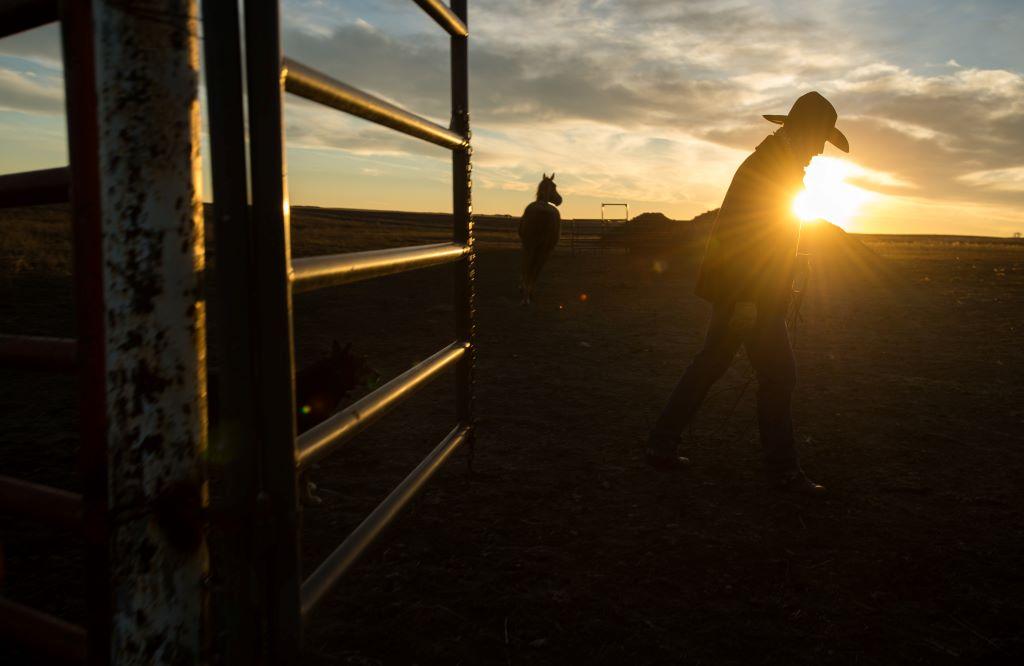
When it comes to aviation safety, much can be learned from the wisdom of cowboys and ranchers and their “westernisms,” Tony Kern, founding partner and CEO of Convergent Performance and a Colorado rancher himself, said during a presentation to hundreds of attendees gathered at Bombardier’s annual Safety Standdown.
Bombardier’s event, called “Moving Safety Forward” runs Nov. 8-10 in Wichita at the Hyatt Regency Wichita Hotel. Some of the sessions are also offered virtually.
“There ain’t much learnin’ in the second kick of a mule." Many other lessons in aviation can be gleaned from the wisdom of ranchers and cowboys, Kern says in his presentation entitled, "It's About to Get Western."
1. Check the fence line every week. You’ll find something.
“Don’t assume that what was good last week is good now,” Kern says. “Talk to your people; check your systems; stay on top of the situation.” Kern checks the fence lines on his ranch every week. Sometimes he will find a dead deer hanging in the fence or a half-eaten coyote. That kind of vigilance is important in aviation safety. It is also important to build good systems and habits and a culture of compliance.
2. Fix small leaks before they become big ones.
“If you’re leaking performance anywhere, whether it’s non-compliance or it’s a lack of training or it’s just the will to do the job well,” it’s time to take action, Kern says. “Sometimes you can tell morale is not doing well. Fix it and fix it early before it becomes a torrent and the hydraulics become too big for you to handle.”
3. Leave the gate how you found it.
“If the gate is open, leave it open. If the gate is closed, leave it closed. Why? Because gates control everything else,” Kern says. “If you close the gate that’s open, maybe those cattle can’t get the water. What this means to us is … don’t second guess everybody. Don’t go closing the gate or open a gate if you don’t know why it was closed or open in the first place.”
4. Every electric fence is hot, and every snake is a rattler until you prove otherwise.
“You learn to respect that a ranch is a dangerous place to be," Kern says. "Aviation is safe as it is inherently dangerous as well. Every little thing could be the thing on any given day.” Stay hyper-focused and vigilant.
5. If in doubt, let the dogs and horses do the thinking.
Ranchers put a lot of trust in their horses and dogs. “If these dogs are alert on something and I look down and I don’t see anything but the hair on the back of their neck is still up, and they’re still leaning down there,” Kern says. “Guess what? They’re right and I’m wrong every time. If I wanted to look far enough or push hard enough, I would see it. But I just sort of believe him and trust him. What does this mean to us? It means trust... When people say, ‘I really need to talk to you about something,’ that’s important.” Pay attention, he says.
6. Build up the roadrunners.
On a ranch, roadrunners are fast. They find the rattlesnakes and have the ability to kill them. Because of that, Kern wants them on his property.
"We’ve got to be able to grow organic allies in our own organization," he says "We’ve got to find the roadrunners to help us. What are they naturally gifted at? What are your people interested in? We want you to be a pilot, but we want you to be part of the family here… And then you raise them up… Recognize them; reward them. Give them the resources they need. Give them a good mentor; be a good mentor…. Move them up when they’re ready. That’s how you build the roadrunners in your organization. If you not only become a great place to work but a great place to be from, you’ll continue to get high-quality people to come.






Comments